How to make homemade bread: recipe step by step
Learn how to make homemade bread step by step without burning, sinking, running or drying. We show you how easy it is.
This post is a manifesto pro pan, a kind but stigmatized food, which is often accused of being a criminal agent capable of fattening our body with excess carbohydrates.
To tell the truth, we overeat when we do not know the correct way to eat it, nor with what to accompany it, nor in what quantity. Whether white or whole wheat, 100 grams of bread contributes about 280 of the more than 1500 calories you need as a daily energy fuel for your brain to work and your muscles to run. In fact, if you consume the right amount of carbohydrates through bread, your body will reserve proteins to stay healthy.
So if you have ever unfairly blamed this precious food, learn > how to make homemade bread will absolve you from anything you have said in the past and, if that was not enough, it will give you the inexplicable additional pleasures of enjoying the smell of baking in your kitchen or simply the pride of prepare your own artisan bread free of preservatives and chemical additives.
To learn how to make homemade bread you do not need more than four basic, economical, ingredients that make up the pantry of any home: flour, water, salt and yeast, plus adapt to your own style of cooking this simple recipe that you can refine as you put it into practice. If you do not get it right the first time, do not despair, patience and rehearsal do the mastery.
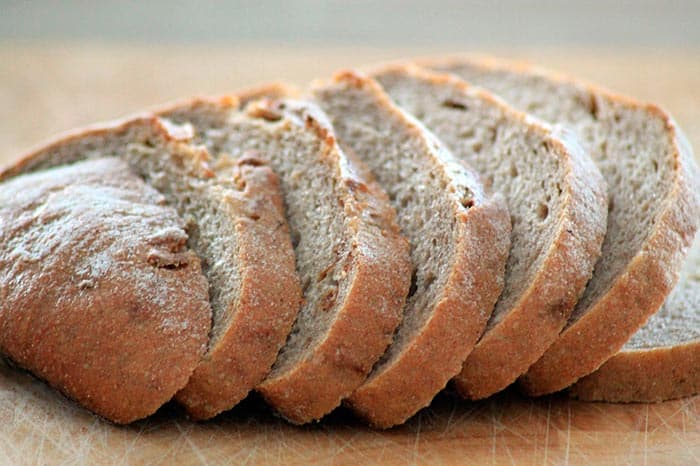
Ingredients to make bread at home
- 500 g of strength flour *
- 10 g of dry or fresh yeast **
- 300 g of warm water
- 10 g of salt
* There are two kinds of wheat flour, strength, rich in gluten and therefore ideal for bread dough, and loose, low gluten and ideal for baking.
** Dry yeast, also called baker's yeast, comes in granulated presentation, while fresh yeast will recognize it as small cubes generally refrigerated.
Step by step: how to make homemade bread
- Blend
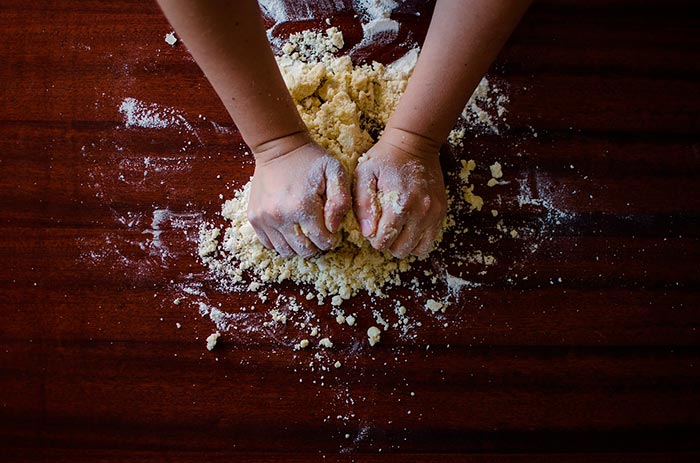
Decking with the help of the two, pour the yeast over the water and let it rest for about 10 minutes. Meanwhile, place the flour in a bowl and sprinkle the salt on it.
Open a hole in the center of the flour and gradually pour the water and yeast mixture over it. Mix everything in a circular direction with the help of your hands, until the ingredients are unified and the mixture is detached from the walls of the bowl. Graduate the consistency that the dough is acquiring, adding only a little flour if it is very humid or just a little water if it is very dry. The ideal point will be that which you will obtain when the dough has a soft texture that does not stick to your hands.
- Amasa
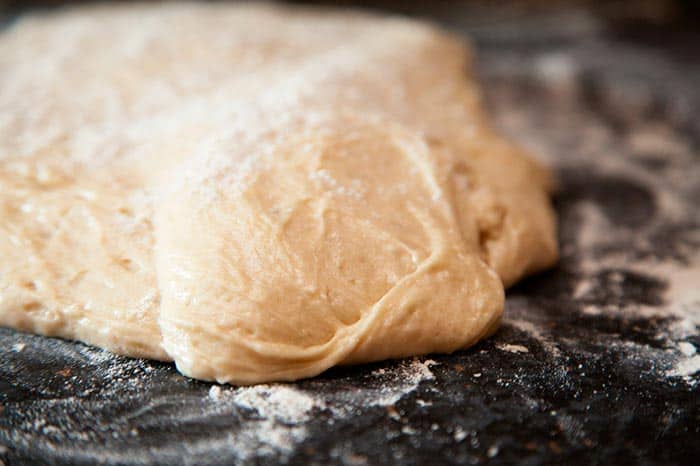
Prepare a flat, smooth surface with sprinkled flour. Stretch your dough here using a hand that holds it firmly, while the other widens it to one side. Stretch it that way and then fold it over itself, so that it remains like a lump on which you can repeat the same operation. Stretch, bend, stretch, bend ... enliven the task humming your favorite song because this should be done systematically for about 15 minutes.Cover with transparent and oiled film, tending it over the mouth of the bowl. Let it rest in a warm place for an hour and wait until this time the magic of the yeast acts to make the dough grow twice its size. Check that the process is sufficient, squeezing the surface of the ball with your index finger. The dough will sink and must return to its original state slowly.
Once this is done, a second round of kneading and fermentation begins. In this opportunity, knead by subtly pressing the ball with the palm of the hand in a circular direction and folding the edges towards the center. Turn and repeat. Now turn your dough into a ball and put it to ferment for 50 more minutes, this time already on the baking tray placed in a warm place. Cover with a clean cloth.
- Bake
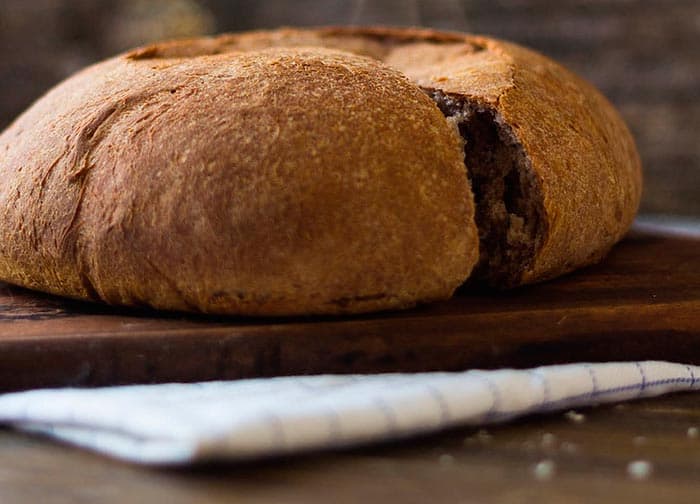
How to make homemade, delicious and crunchy bread
Place a new tray with the contents of a cup of water in the base of the oven and preheat the oven to 250 ° C. Before introducing the tray where the dough rests, trace one or more shallow incisions on its surface. Insert in the oven and then atomize its interior with a little water. After the first 20 minutes of cooking, remove the tray with water from the base of the oven, lower the temperature to 200 ° C and let it cook for 15 more minutes. After this time, hit the surface of the bread with your knuckles and check that it sounds hollow. You're ready to leave the oven!
Leave to cool on a rack for hours or even until the next day.
Common mistakes of novice bakers when they are learning how to make homemade bread
- "My dough never raised" - check that the yeast is not expired and take into account that the fresh yeast decomposes very quickly. If the problem is not the expiration of the yeast, you may have killed it if you used very hot water to activate it. It is also important that during lean times the dough does not stay in a very cold place.
- "My bread is a sponge" - maybe you got excited watching it grow in fermentation and you let it take too much.
- "My bread was watered down" - maybe you kneaded out of proportion. Half of the secret of the stimulation of the mass is in our rubbing and the other half in the invisible action that it does by itself. Another important factor is that you have created the proper vapor atmosphere inside the oven so that the bread forms crust. And pay attention to this: never cut and consume the bread fresh from the oven. It smells wonderful but you must eat it when you have completely released its moisture, at the hours or the next day.
- "My bread is a stone crust" - in this case it is probable that you have run your hand with the moisture that you gave the oven.
- "I was dry and rough" - beware of abusing the quantities of flour, like with the high temperature or the exaggerated cooking time.
- "I was left raw" - classic error when you are learning how to make bread. Check the temperature of your oven and check if the trays pass enough heat to the bread. Just in case you feel it raw you can bake a few more minutes, watching of course not to burn yourself. But the best thing is that you know your oven very well.
Thousand and one ways to make bread
Learn how to make Homemade bread will be so satisfying that after the first baked for sure you will want to experiment more by making flavored breads.Well, the next thing you should have in your kitchen shelf is the book Pan Casero , a complete pocket guide with everything on the subject.
Long life (more still) to good bread!
Now that you have learned how to make homemade bread, what if you learn to make other delicious and simple recipes?
- For example learn How to make pizza.
- Andalusian gazpacho recipe: perfect for home-made artisanal bread.
- Chicken-rice recipe: a classic of family cooking.
- Tortilla de patatas: If you learn to make it, you can prepare a delicious tortilla sandwich with bread and a stream of olive oil.
- Chocolate sponge cake recipe: as dessert, one of the most famous and simple to prepare.
- And if you do not want to complicate a lot cooking, look at our easy recipes.
Below is the printable version of the recipe:
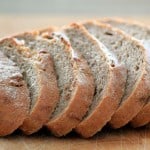
Easy bread recipe
Comments
Comments


